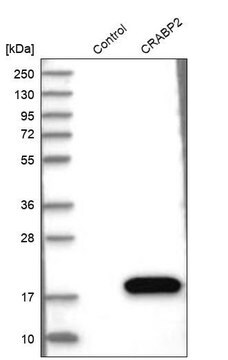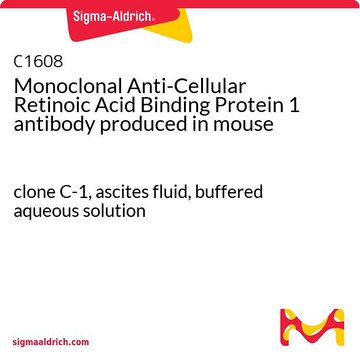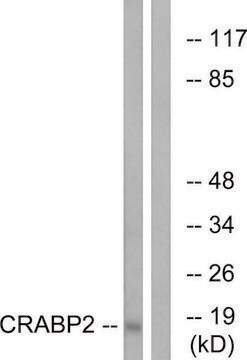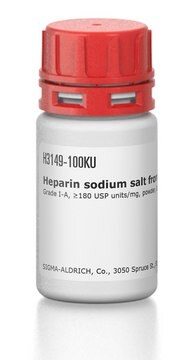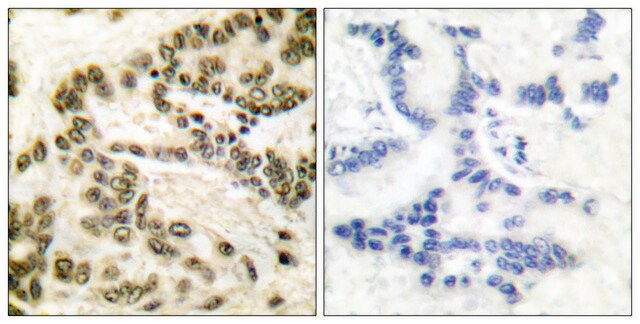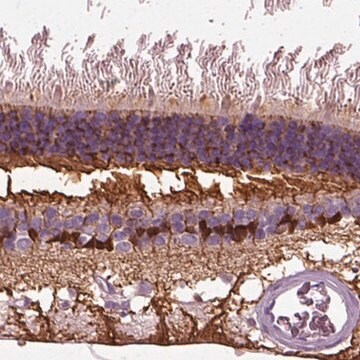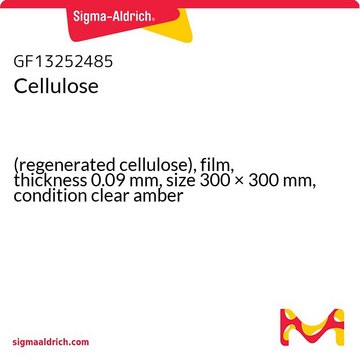SAB1402736
Monoclonal Anti-CRABP2 antibody produced in mouse
clone 4F2, purified immunoglobulin, buffered aqueous solution
Synonyme(s) :
CRABP-II, RBP6
About This Item
Produits recommandés
Source biologique
mouse
Conjugué
unconjugated
Forme d'anticorps
purified immunoglobulin
Type de produit anticorps
primary antibodies
Clone
4F2, monoclonal
Forme
buffered aqueous solution
Poids mol.
antigen ~42.7 kDa
Espèces réactives
human
Technique(s)
immunofluorescence: suitable
indirect ELISA: suitable
western blot: 1-5 μg/mL
Isotype
IgG2aκ
Numéro d'accès NCBI
Numéro d'accès UniProt
Conditions d'expédition
dry ice
Température de stockage
−20°C
Modification post-traductionnelle de la cible
unmodified
Informations sur le gène
human ... CRABP2(1382)
Description générale
Immunogène
Sequence
MPNFSGNWKIIRSENFEELLKVLGVNVMLRKIAVAAASKPAVEIKQEGDTFYIKTSTTVRTTEINFKVGEEFEEQTVDGRPCKSLVKWESENKMVCEQKLLKGEGPKTSWTRELTNDGELILTMTADDVVCTRVYVRE
Application
Actions biochimiques/physiologiques
Forme physique
Vous ne trouvez pas le bon produit ?
Essayez notre Outil de sélection de produits.
Code de la classe de stockage
10 - Combustible liquids
Classe de danger pour l'eau (WGK)
WGK 1
Point d'éclair (°F)
Not applicable
Point d'éclair (°C)
Not applicable
Certificats d'analyse (COA)
Recherchez un Certificats d'analyse (COA) en saisissant le numéro de lot du produit. Les numéros de lot figurent sur l'étiquette du produit après les mots "Lot" ou "Batch".
Déjà en possession de ce produit ?
Retrouvez la documentation relative aux produits que vous avez récemment achetés dans la Bibliothèque de documents.
Notre équipe de scientifiques dispose d'une expérience dans tous les secteurs de la recherche, notamment en sciences de la vie, science des matériaux, synthèse chimique, chromatographie, analyse et dans de nombreux autres domaines..
Contacter notre Service technique